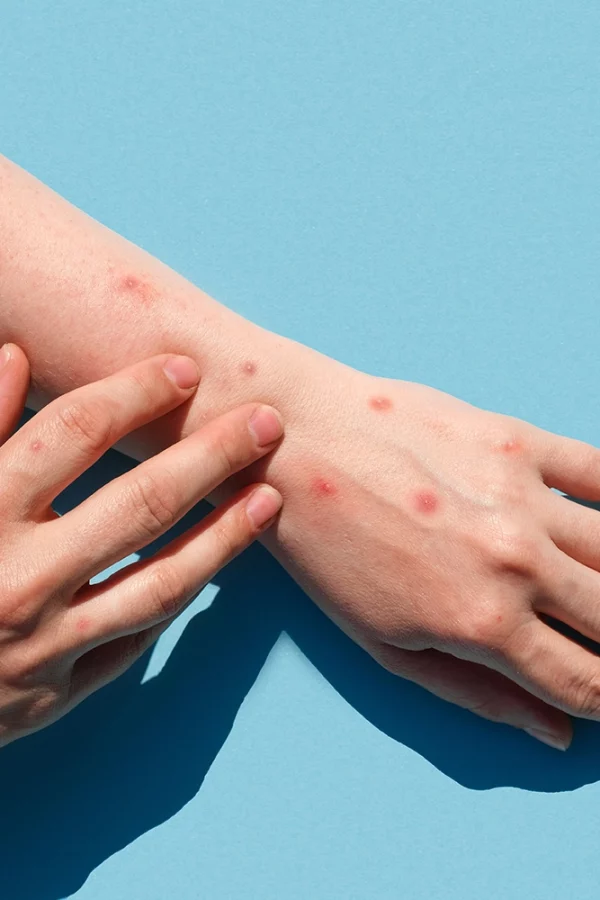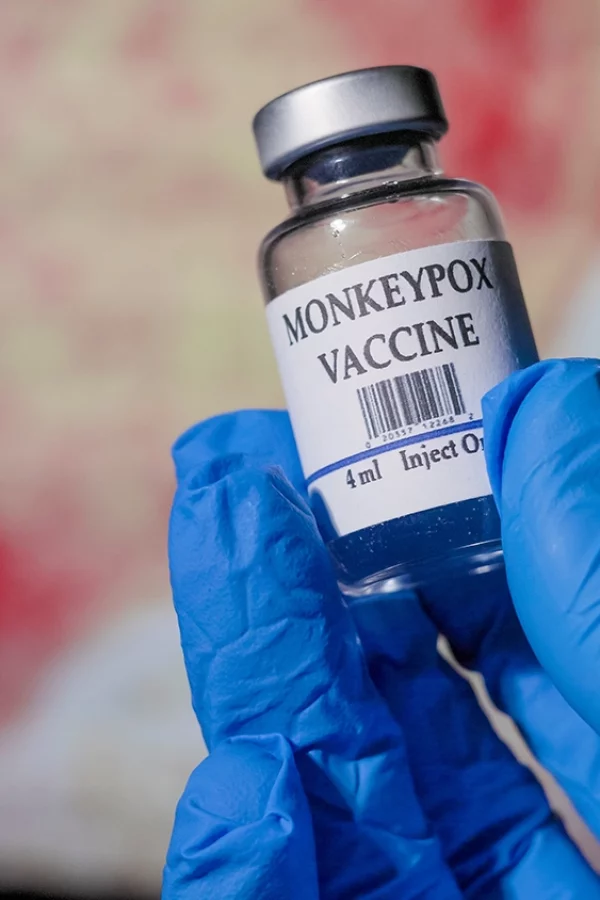- Updated June 7, 2023 | Originally Published
- July 19, 2022
High Risk of MPOX Resurgence in Pinellas and Hillsborough Counties
Recent CDC reports are raising concerns about the potential for a summer MPOX outbreak in Florida counties, including Pinellas and Hillsborough. It’s important to stay informed and take necessary precautions to protect ourselves and our communities.
Protect Yourself with Pride
Get Vaccinated! Metro Inclusive Health currently has MPOX vaccines available. Vaccines require two doses 28 days apart, so don’t delay in getting yours. Mpox vaccines are available at our Central Ave., Fletcher and Seminole Heights locations.
Stay Updated. Pay attention to updates or new guidelines related to MPOX from qualified sources such as the CDC or METRO and take appropriate precautions.
Seek Medical Attention. If you or someone you know experiences MPOX symptoms; early detection, diagnosis, and appropriate treatment can help mitigate the severity of MPOX and prevent further transmission.
Tell a Friend! If you know someone else that needs the MPOX vaccine, we’re happy to serve current patients and their friends with walk-ins welcome.
Your health and wellbeing are our utmost priority. If you have any questions about the MPOX vaccine or would like to schedule an appointment, please call 727-321-3854 to speak with a METRO representative.
MPOX in Tampa Bay: 8 Things You Should Know!
You’ve heard about it in recent headlines, but you’re still wondering… What exactly is mpox (formerly known as monkeypox)? Should I get vaccinated?
First, let’s take look at prevalence in our region. As of publication, there are 633 confirmed cases within the state of Florida, according to the CDC. Many of these cases were identified in South Florida’s Broward and Miami-Dade areas. However, we’ve already seen several cases of mpox in Tampa Bay – including both Pinellas and Hillsborough counties.
As an established provider of over 100 programs and services supporting the health and wellness of Tampa Bay residents, Metro Inclusive Health is ready to answer your questions. Here’s what you should know.
What is Mpox?
The mpox virus is part of the same family of viruses as variola virus, the virus that causes smallpox. For that reason, it shares some of the same symptoms. However, mpox symptoms tend to be milder, and are rarely fatal.
What are the Symptoms of Mpox?
Mpox symptoms tend to be visible. A possible mpox infection may include a combination the following symptoms:
- Rashes (including on the face, inside the mouth, and on other parts of the body, like the hands, feet, chest, genitals, or anus)
-
Swollen lymph nodes are very common, usually preceding rash and accompanying fever
-
Fevers and/or headaches that appear before a rash
-
Muscle aches and/or backaches
-
Chills and/or exhaustion
How do you tell if it’s a mpox rash, though? A rash that appears on the palms of the hands and soles of feet could indicate syphilis, mpopx, Rocky Mountain Spotted Fever or meningococcal disease.
Characteristics of an Mpox Rash
- Unlike syphilis, the mpox rash is often described as painful, becoming itchy once it crusts over.
-
Lesions are well circumscribed, deep seated, and often develop “umbilication” (basically, a dot may appear on the top of the lesion).
-
Lesions can be found in relatively the same size and same stage of development on a single site of the body (ex: pustules on face or vesicles on legs).
-
You’re more likely to find lesions appearing on extremities or on the face.
How is Mpox Spread?
So, according to the CDC, the mpox virus can spread from via direct contact with an infectious rash, scabs, or body fluids. Other ways it can spread are through contact with an infected animal, or from parent to child through the placenta.
Exposure could occur in highly crowded areas such as nightclubs, festivals, concerts and raves (indoor or outdoor), but also intimate spaces like a massage parlor, spa or sauna.
Prolonged, face-to-face contact or intimate physical contact, such as kissing, cuddling, or sex can also spread the virus through respiratory secretions. Additionally, it could be spread through intimate objects, such as clothing, bedding or sex toys.
Mpox is not a sexually transmitted infection or disease. Due to the way it is transmitted, however, sex and physical intimacy are higher-risk behaviors.

Who is at Risk of Contracting the Mpox Virus?
Mpox can be acquired by all people, regardless of gender identity or sexual orientation, and should be considered a general public health concern. In the case of recent outbreaks in the U.S., the greatest risk has been seen among:
-
Those who have come into close contact with someone who had a rash that looks like mpox or someone who was diagnosed with confirmed or probable mpox,
-
Those who have had prolonged skin-to-skin contact with others in a community gathering where a mpox outbreak is present,
-
Those who have traveled outside the US to a country with confirmed cases of mpox or where monkeypox activity has been ongoing,
-
Those who have had contact with a dead or live wild animal or exotic pet that exists only in Africa or used a product derived from such animals (e.g., game meat, creams, lotions, powders, etc.).
How To Get Tested For Mpox
Where can I get tested for mpox?
If you’re showing symptoms of mpox, seek treatment to confirm whether or not you have the virus. To be tested, the patient will need to have an appointment with a qualified healthcare provider, like a primary care physician, as it requires an exam and clinical evaluation of the lesion. Metro Inclusive Health offers clinical evaluation through our medical providers. You can inquire about appointments by calling (727) 321-3854.
What is the mpox test like?
In order to test for monkeypox, your provider will need to swab an active lesion. Once a sample is collected, it will be sent to a lab for evaluation.
How Can I Help Reduce the Spread of Mpox Near Me?
- Get vaccinated if eligible (see below).
- Avoid events or activities with prolonged skin-to-skin contact.
- Wash hands often with soap or an alcohol-based sanitizer.
- Talk to your intimate partners and household members about symptoms and prevention.
- Temporarily reduce the number of intimate partners and encounters.
Who Should Get a Mpox Vaccine?
In accordance with recommendations by the CDC, mpox vaccines are a priority for individuals who meet the following criteria:
- Immunocompromised individuals and/or those living with HIV that may be exposed to high-risk spread situations as identified above,
-
MSM (men that sleep with men)* who have multiple partners, including anonymous sex,
-
Members of the trans community, particularly trans women, who may be exposed to high-risk situation as identified above,
-
Health care staff that may be closely exposed to a patient or patients with mpox,
-
Household contacts of people diagnosed with mpox.
* Many—though not all—of the reported cases (as of publication) have been among gay and bisexual men, and initial public outreach has been targeted to reach the affected demographic. However, monkeypox can be spread by and to anyone, and identity should not be misunderstood as a cause of diagnosis.

About the mpox vaccine: JYNNEOS
- JYNNEOS is the only FDA-licensed vaccine in the United States that is approved for prevention of monkeypox disease, as well as smallpox.
- The vaccine is non-replicating, which means it is safe for immune compromised individuals.
- It is a two-dose injection vaccine. Doses are administered at least 4 weeks apart. Immune response takes 2 weeks after the second dose for maximum development.
- Possible reactions to the vaccine include injection site reactions (eg, pain, swelling, redness, induration, itching), muscle pain, headache, fatigue, nausea, and chills.
Mpox Vaccines at Metro Inclusive Health
Metro Inclusive Health is has received a limited number of Mpox vaccines from the Florida Department of Health. Availability is dependent on federal and jurisdictional vaccine prioritization and allocation strategy. Bookmark this page for updates on mpox availability and distribution by Metro Inclusive Health.
Check out our featured segment on mpox with WTSP 10 Tampa Bay or watch below.
Sources: CDC.gov | Florida Department of Health | MPR | NYC Health








